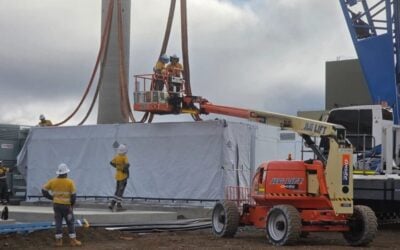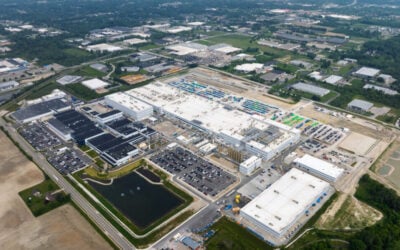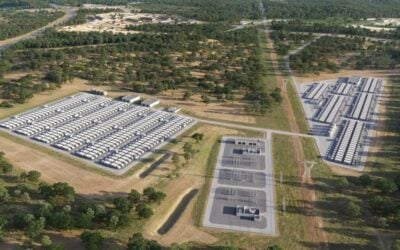24M claims its Li-ion battery cells require less specialised equipment to manufacture and less materials resulting in a 50% cost saving compared to conventional Li-ion cells. Credit: 24M
24M Technologies, a battery company spun out of A123 Systems in 2010, has signed a memorandum of understanding (MoU) to supply its semisolid lithium-ion cells to NEC Energy Solutions for use in NEC ES’s integrated energy storage systems.
In a blog for PV Tech Storage published in July, Lilia Xie, a research associate on the Energy Storage team at Lux Research, explained that 24M battery cells have unique capabilities compared to standard Li-ion cells. Standard cells contain films of solid electrode materials in contact with liquid electrolytes, whereas, in its own cells, 24M has replaced these films with semi-solid electrodes made of Li-ion cathode and anode materials suspended in conventional liquid electrolytes.
Enjoy 12 months of exclusive analysis
- Regular insight and analysis of the industry’s biggest developments
- In-depth interviews with the industry’s leading figures
- Annual digital subscription to the PV Tech Power journal
- Discounts on Solar Media’s portfolio of events, in-person and virtual
This design is easier to manufacture, requiring less specialised equipment with an estimated 50% saving compared to the standard cost of producing Li-ion cells, the company has claimed. It is also claimed to be less time consuming than standard electrode production and requiring smaller plant sizes.
24M said the modified manufacturing of its battery cells lowers the total cost of ownership and can provide a rate of return on a par with conventional fuel technologies. The company is targeting a cost of less than $100/kWh by 2020 at a GWh-scale of production.
In another blog for PV Tech Storage, Roger Lin, marketing director at NEC Energy Solutions, said it was a myth that batteries currently fade after too few charge cycles to be viable for grid-scale energy storage.
He said: “The latest generation of lithium-ion batteries has an extremely good round-trip efficiency when it comes to charge and discharge cycles and a long lifespan before fading, which means mass market utility-scale energy storage is now possible.”
24M claimed that its battery cells are optimized to “withstand the rigors of the long cycle and calendar life” required by grid-scale energy storage systems.
A 24M statement said that, under the MoU, it would also be working alongside NEC ES to make sure that the cells improve the energy density and lifetime of NEC ES’s storage systems. NEC ES combines its Energy Storage Systems with smart controls to help with the electric grid, through applications such as backup power and lead-acid replacement. It plans to use the new 24M cells in its storage systems across the globe, according to Bud Collins, chief executive of NEC ES.
In her blog, Xie said that 24M set itself up as a cell supplier to stationary systems integrators for longer duration applications of approximately four hours – adding: “If its manufacturing process is truly scalable at low costs and the performance of its cells lives up to its claims, 24M’s technology is potentially disruptive.”
She said a scale-up could have an impact on various levels of the Li-ion value chain, from raw materials to manufacturing equipment.
Referring to the MoU, Collins, said: “NEC Energy Solutions is excited to combine the 24M breakthrough cells with our industry leading storage systems to offer customers the most affordable and best in class energy storage systems. Working together, NEC Energy Solutions and 24M will provide customers with high performance, 20-year battery life for reliable grid, off-grid and behind-the-meter solutions.”
Throop Wilder, 24M’s chief executive, said: “This agreement to supply 24M cells to NEC Energy Solutions, an established industry leader, is further validation of our cell technology. Through this MoU, NEC Energy Solutions and 24M will be able to bring industry-leading solutions to market more quickly and cost effectively, accelerating the adoption of advanced ESS across the globe.”
In July NEC ES announced the completion of a 2.4MW, 3.9MWh grid-connected battery system for the utility Southern California Edison to support SCE’s distribution grid.






